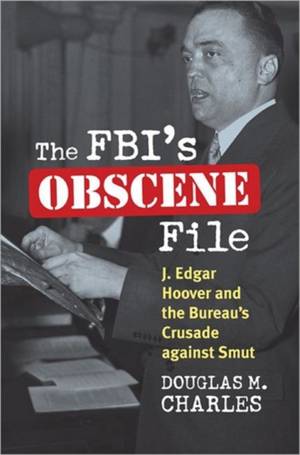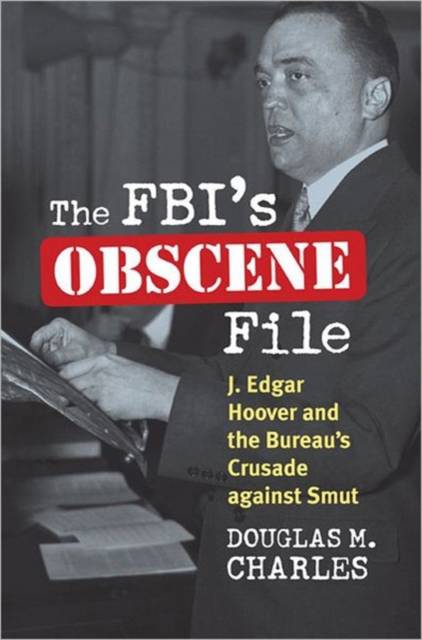
- Afhalen na 1 uur in een winkel met voorraad
- Gratis thuislevering in België vanaf € 30
- Ruim aanbod met 7 miljoen producten
- Afhalen na 1 uur in een winkel met voorraad
- Gratis thuislevering in België vanaf € 30
- Ruim aanbod met 7 miljoen producten
Zoeken
The Fbi's Obscene File
J. Edgar Hoover and the Bureau's Crusade Against Smut
Douglas M Charles
Hardcover | Engels
€ 46,45
+ 92 punten
Omschrijving
What do pop artist Andy Warhol, sex researcher Alfred Kinsey, and cinematic comedians Abbott & Costello have in common? They all found a prominent place in the FBI's "Obscene File." In this startling new study Douglas Charles reveals how, for more than seventy years, FBI officials placed obscenity, pornography, and the politics of morality among their topmost concerns. Illuminating this largely neglected aspect of FBI history, Charles charts the evolution of the Bureau's efforts to combat the spread of obscenity and its perceived insidious effects. He contends that, especially during the five decades under J. Edgar Hoover, these efforts became a surprisingly high priority and at times were expressly wielded for political ends, even as Hoover hid the file from public view in order to preserve the Bureau's squeaky-clean image. Charles recounts how the "Obscene File" was conceived and organized by Hoover and describes its contents, which included magazines, films, and artwork in addition to dossiers on offenders. He examines the FBI's targeting of 1940s and '50s "race music" with its depictions of "lewd and licentious acts in obscene and foul language." He describes how the FBI collected photos of activities at gay bars and prosecuted businesses that published "obscene" pro-gay magazines, and how it participated in the "Lavender Scare" that targeted gays in the federal government. He also details the FBI's efforts to short-circuit the distribution of the film Deep Throat and disrupt the pornographic movie industry. On the political front, Charles tells how Hoover found a fellow crusader in Richard Nixon, who hijacked the obscenity issue to rally an electoral base weary of an "anything-goes" decade. But as changing mores and laws redefined obscenity, subsequent directors moved away from Hoover's approach and focused more on mob control of pornography, kiddie porn, and the war on drugs. Subsequently, the "Obscene File" mostly fell into disuse during the presidencies of Bill Clinton and George W. Bush, the latter president unable to gain any traction with his own obscenity initiatives. Taking in the whole scope of these operations, Charles's insightful history offers a previously unseen look at a major facet of FBI activities and contributes significantly to our understanding of Hoover and his legacy.
Specificaties
Betrokkenen
- Auteur(s):
- Uitgeverij:
Inhoud
- Aantal bladzijden:
- 184
- Taal:
- Engels
Eigenschappen
- Productcode (EAN):
- 9780700618255
- Verschijningsdatum:
- 26/04/2012
- Uitvoering:
- Hardcover
- Formaat:
- Genaaid
- Afmetingen:
- 163 mm x 236 mm
- Gewicht:
- 430 g

Alleen bij Standaard Boekhandel
+ 92 punten op je klantenkaart van Standaard Boekhandel
Beoordelingen
We publiceren alleen reviews die voldoen aan de voorwaarden voor reviews. Bekijk onze voorwaarden voor reviews.








